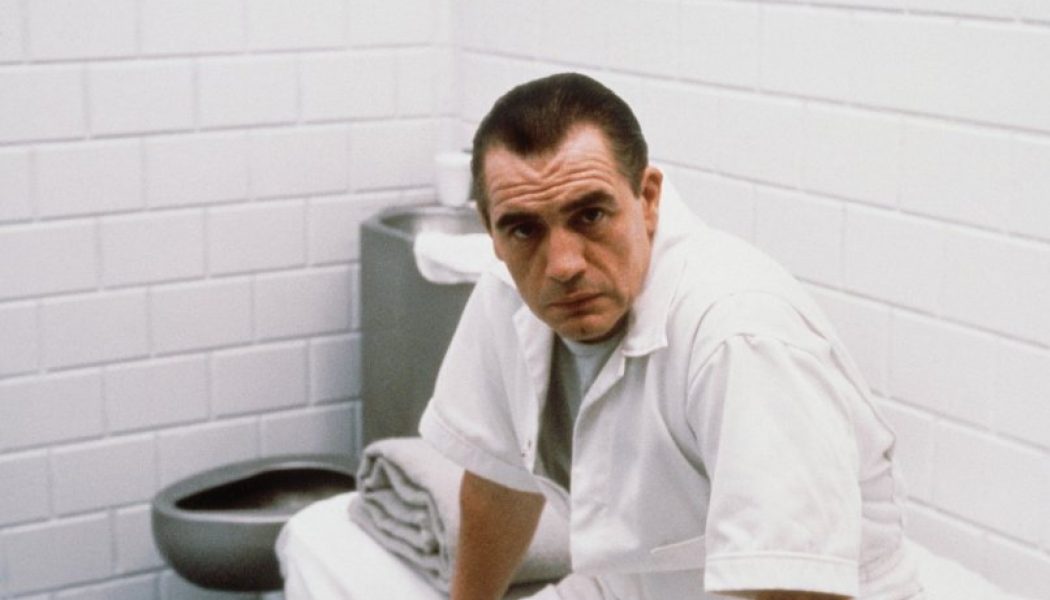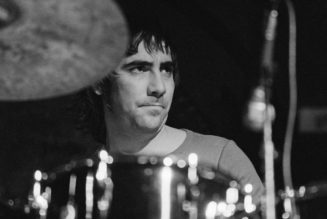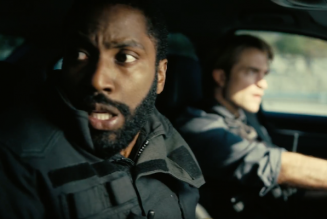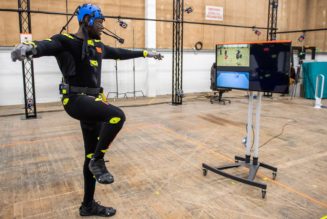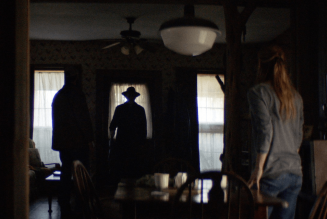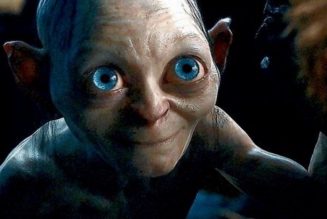Beauty is in the eye of the beholder. Art is subjective. Music and movies aren’t about competition; they’re about artistic expression. Well, for those of you who know better than to believe those lies, welcome to another installment of Vs. This time, Justin Gerber, Clint Worthington, and Dominick Suzanne-Mayer debate over who played the best Hannibal Lector as Ridley Scott’s Hannibal turns 20 and Jonathan Demme’s The Silence of the Lambs turns 30. Mind you, this piece originally ran in 2016.
Justin Gerber: I grew up on Anthony Hopkins’ Hannibal. It earned him an Academy Award for Best Actor. It gave his career a boost it desperately needed, and he’s been pretty much riding the waves ever since. He’s great. No question.
However, there’s something about the laissez-faire performance of Brian Cox in 1986’s Manhunter (Michael Mann’s film adaptation of Red Dragon) that continues to impress me above all others. We only see him in short stretches, either conversing with Will Graham (William Petersen, still the best in the role) or through telephone calls, but his take on the character is fascinating. This is a Hannibal from the local pub, the kind of guy you can imagine kicking back in the corner and enjoying a pint just before dusk. There is nothing evil about him. He’s so unassuming you’d never see him coming. The fact that there is no real moment of terror from this Hannibal throughout Manhunter makes him that much more of a puzzling character.


We ask ourselves, “What would cause him to break?” “Would we see it coming?” “Why?” Hopkins exceled at the sinister, Mads Mikkelson with the cool and collect, but Cox was a different kind of monster all together: normal. He blends in with his chalk-white prison cell as though he’s always been a part of it and in no hurry to leave. When Graham first enters the picture, he’s lying in bed with his back to him. He leans against the wall when talking to him, leaning forward when he asks “Dream much, Will?” There is a casual bit to this delivery that throws us off. It reminds me of Stephen King’s criticism of the Kubrick’s Shining adaptation, and how the author felt that Jack was crazy from the moment we see him on screen as opposed to the alcoholic teacher he wrote about years earlier. Cox’s Hannibal Lecktor (film spelling) could excel in the real world because he feels real. Not to dismiss the other iterations, but that makes a big difference in my book.
Clint Worthington: When NBC’s Hannibal was announced, I (and possibly many others) wrote it off as yet another limp network procedural- a nostalgic prequel that would anemically retell the origin story of somebody whose origin we didn’t need. Three seasons later, Bryan Fuller’s vision of a painterly, psychosexual exploration of sanity and control is one of those bravura cult hits we still can’t believe was allowed on network TV. Essential to that is Mikkelsen’s stylized, aristocratic portrayal of Hannibal Lector, who managed to worm his way to the top of my list.
While Hopkins was a sneering, self-aggrandizing showman, and Cox was a monster horrifying in his mundanity, Mikkelsen’s Hannibal is a baroque aesthete. Every episode dresses him in a new and fascinating three-piece suit, the camera lovingly pans over his fastidiously-made dishes, and Mads’ own uncannily-handsome face makes for an imposing profile. I mean, look at this punim:


It’s fitting, frankly, that Bryan Fuller’s version of Hannibal would concern himself so much with accoutrements and style, given the slasher-as-art-film approach the showrunner cultivated through all three seasons. Every sultry, half-mumbled probing question and philosophical insight, filtered through his intoxicating Danish accent, elevates him into a passive, calculating observer of the psychological condition. This is particularly true in his scenes with Hugh Dancy’s Will Graham, their homoerotic tension a far sight more dynamic than their lame father-son routine in Red Dragon. That’s not to say that Mikkelsen can’t throw down: When he moves in for the kill, he does so with the raw ferocity of a desperate animal. Mikkelsen’s Hannibal deeply explores the philosophy behind his actions – cannibalism as a desire to understand the world, and his mortality, more than happy to live out his contradictions as a self-aware beast who dresses up like a man.
Mikkelsen straddles that fine line between man and beast in a way Hopkins nor Cox manage as adroitly. Granted, that’s because he gets more time in the role than anyone else – still, for 30-odd episodes, Mikkelsen gives us a Hannibal who lives his days as both the bespoke-suit-wearing hedonist and the bloodthirsty man-eater.
Dominick Suzanne-Mayer: And now comes the thankless part where I get to go to bat for the thing everyone already likes a whole lot. But let’s start with one of the classic citations: Anthony Hopkins is only in about 16 minutes of The Silence of the Lambs in total. It’s endlessly incredible to consider how iconic Hopkins’ vision of the character became in such little time. And this is absolutely owed in part to Demme, who creates a kind of aura around Lecter long before he shows up and especially when he does. But it’s Hopkins’ performance that gives the film its grander thematic weight.
What some forget about Silence for all the Buffalo Bill and mouth-flitting stuff is how it’s one of the very best crime procedurals, because it’s one completely concerned with perversions of all kinds as the true engine of evil in the world. (We can talk all day about the ways in which that’s kind of unpleasant, in hindsight, at times, but that’s a whole different conversation.) And Hopkins set the tone for seemingly every notable onscreen villain that’s followed in the quarter-century since by imagining perversion of the most severe caliber as a restrained, almost effete thing in his way. And his Lecter doesn’t just violate in the stricter cannibalistic sense. His speech to Clarice is a great example of the deeper, more intellectual violation. There’s an intimacy to the way that Hopkins introduces insights into Clarice’s character (and by proxy, her fears) in just a few words: “You’re not more than one generation from poor white trash, are you, Agent Starling? And that accent you’ve tried so desperately to shed: pure West Virginia.”
The hypocrisies of his Lecter are completely by design; it’s the same idea that inspired Heath Ledger’s Joker and his ever-shifting backstory later on. But Hopkins seems to stare not just through anybody he encounters, but into them. He sees what makes them the most insecure, what makes them weak. He knows the ways they protect themselves from those truths. And he pounces on them. It’s a violation of the secret, the private, the things you only think about when staring at the ceiling in the middle of the night. This makes him a different, far more malignant kind of monstrous. Because like Cox’s iteration, as Justin mentioned, it’s the most plausible monster in the world. And it’s one wholly created by hideous extremes of modern intellectualism, which leads to the even scarier realization that Hopkins’ Hannibal is a terror begat from a world we made for ourselves.
Justin Gerber: I really like this interview that Cox gave to Den of Geek a few years ago. It’s a nice in-depth look at his performance in Manhunter, and here’s a little taste (pun definitely intended): “They’re two different animals, they really are. It’s like comparing two Hamlets, or two Lears. I thought the interesting thing about doing the film, is that Tony [Hopkins] decided to play it in a certain kind of way. He stood in the middle of the cell, and was completely upfront about who he was. I start the scene with my back to the audience, so I can pull them in. I’m trying to seduce the audience in an entirely different way. Whereas Tony’s there, he’s an indefatigable force.” It’s a testament to the small choices actors and directors have to make because no matter how good the script is, it can only take the performer so far. It’s tough to say who does it better when these actors are approaching the role in vastly different ways.
You’ve got the townie, the scary grandfather, and the seductive Dane. If I saw the three of them standing outside my door doing their best “Hannibal”, I’d probably let Cox in before the others. Who am I kidding? I wouldn’t let any of them in, but can’t you imagine looking Cox square in the eyes for longer than five seconds? I wouldn’t be waiting for him to attack. I wouldn’t know what that would be like. When Hopkins takes control later in Silence he’s like a wild beast unleashed. Mikkelson is like a cobra that has lulled in his prey before a sudden strike. It goes back to what I wrote earlier about trying to figure out Cox’s Hannibal. Would his eyes go blank as he wrapped his hands around my throat? Would he laugh? Would he stare? Smile? That his character remains so unexplored and completely intact keeps him interesting.
Clint Worthington: Hopkins and Cox’s portrayals are fascinating by comparison, in that they’re effectively polar opposites of each other — the showy impresario and the cagey madman. However, Mikkelsen feels like something entirely unlike either of them. Sure, there are elements of Hopkins’ high-class tastes in Mikkelsen’s Hannibal, but it feels more focused, directed. He’s much more methodical than either other Hannibal, relishing less in his inherent superiority over the mundane people with which he surrounds himself. While Hopkins leers over Clarice, and Cox sneers at Graham, Hannibal takes a genuine, if distanced and analytical, interest in his subjects. He kills not just because it gives him some sort of sexual thrill — it all seems part of a greater philosophical and psychological gambit to get at the heart of man’s cruelty. Sure, it’s illustrated with all the subtlety and nuance of a sledgehammer at times, but Mikkelsen turns out to be some sort of cannibal-cum-social-scientist.
It may be a bit unfair to say this, however, but Mikkelsen simply gets more time in the role to make such a strong impression. Before Hannibal, Lector/Lecktor benefited most from his limited screen time. Both Hopkins and Cox spend just a few minutes on screen in their major performances, and Hopkins’ later attempts to reprise the role haven’t been all that successful. Mikkelsen, meanwhile, managed to carry an entire television series over three seasons, crafting a consistent and compelling villain that holds up far better than if Hopkins, for instance, was asked to play Lector for that long.


Dominick Suzanne-Mayer: Clint, you make a good point about the leer of Hopkins’ Hannibal, but it’s something that’s always had a curious depth of meaning behind it. In comparing the three, what emerges is this sort of litmus test for which kind of fear is most effective for somebody. It can be the almost clinical nature of Mikkelsen’s work, or Cox’s more muted turn. With Hopkins, there’s a kind of snakelike charm to the performance that makes him all the more disturbing. There’s a calm to him, but it’s really the assurance that gets under your skin. Just look at our intense public fascination with serial killers, one only spurred on by Silence. People want to know a rationale. They need to. Even if it’s as base as sexual thrills or sociopathy, we’re compelled to understand what could make somebody like Lecter do these things. More to the point, we want the comfortable reassurance that he’s just a madman. That he looks so much like us, and sounds like us, and even has a bit of good humor about his dark predilections, makes him all the more horrifying.
It’s also the only performance out of the three that, while integral to the work in which it exists, is not Silence‘s primary driving force. The film is not the same film (or nearly as good) without it, but Silence is ultimately a story about the race to catch Buffalo Bill. Because of this, Hopkins becomes a sort of unseen, omnipotent hand over the action. He’s ahead of Clarice long before and long after the film catches up with them, and through one means or another is always waiting off just in the wings. Watching. Knowing what you’ll do before you even have the germ of an idea to do it. And that’s fear.


Justin Gerber: At the end of the day/movies/television programs, who did it best is ultimately tough to decide. I’m old enough to remember being absolutely creeped out by Hopkins from the moment we see him through Clarice’s POV as she walks down the narrow path to his cell — his dead eyes watching her/us the whole way. Mikkelsen took an iconic character made famous by an iconic performance and made him his own, starring in one of the best TV series of this decade.
Cox’s performance in Manhunter has been overlooked over the years, and its understandable why. His is the only movie where Hannibal is overshadowed by a more formidable villain, in this instance via Noonan’s quiet psychopath. Hopkins made mince meat out of Ted Levine’s Buffalo Bill, Gary Oldman’s Mason Verger, and Ralph Fiennes take on Dollarhyde. Mikkelson dispatched of his co-stars in much the same way. This isn’t a slam on either Cox or those other aforementioned actors. The focus has always been on Hannibal, except in the case of Manhunter.
Still, I remain haunted by him. It’s unfair to Hopkins because that performance has been reprised countless times not only by the actor but by others riffing on it. In time maybe I’ll feel the same way about Mikkelsen, but for now I leave you with this: “Have you ever seen blood in the moonlight, Will? It appears quite black.” Yeesh. Goodnight.


Dominick Suzanne-Mayer: That whole idea of others riffing on Hopkins’ work is arguably integral to why his work in Silence is recalled with the fondness it is. Coming out of an ‘80s (and into much of a ‘90s) rife with over-the-top cartoons for villains, he offered a new way to get to an audience that didn’t require a weapon or an eminently repeatable one-liner. His Lecter is a creature of intellect above all, one whose rational mind is as lucid discussing the finer points of a serial killer’s inclinations as he is the taste of a census taker.
And particularly now, looking back on the film when we’re smack-dab in the middle of an era of overexposition and long-winded origin storytelling that aims to smooth away any and all unintentional mysteries about characters, Hopkins in Silence is a powerful reminder that sometimes less really is more. Perhaps the scariest thing about him is that in many ways Hannibal is no less a cipher at the end of the film than he is when Silence arrives at his cell. He just goes off to his next adventure. Which ended up involving Ray Liotta, but we’ll get into that some other time.


Clint Worthington: Funny enough, Hannibal the TV series threatens at all turns to be that kind of ‘long-winded origin storytelling’ that understandably wearies you, Dom. And yet, Mikkelsen’s Hannibal manages to escape all of that by simply reinterpreting the character in a pre-Red Dragon era when he was still a respected forensic psychiatrist. He’s simply a methodical hedonist at the top of his field, a devilishly handsome ivory-tower intellectual with an impenetrability he manages to maintain even by the end of the show. Despite being the central character, he’s no less opaque than Hopkins or Cox, but (in tandem with Fuller’s precise, glossy filmmaking) Mikkelsen infuses him with an almost supernatural understanding of the world around him.
When it comes to all the Hannibals, I agree Dom that less is more, but I think Mikkelsen holds it back even further than Hopkins does. His flamboyantly excessive wardrobe is effectively a suit of armor, one which nonetheless reflects the tastes (pun intended) of the man much better than Hopkins and Cox were able to in their prison jumpsuits. All three are stellar examples of the domineering allure of psychopathy, but Mikkelsen’s wiry physicality and piercing Nordic eyes edge him out in the end for me. To borrow a phrase from noted film podcast The Flop House, I’m mad about Mads.
